“It was more is more, is more, is more!”: how Idles refused to restrain themselves on new album Ultra Mono
We sit down with guitarists Mark Bowen and Lee Kiernan to discuss the Bristol band’s meteoric rise, drugs, alcohol, mental health, the restorative powers of a good baritone, and the paths that led them to become the unlikely standard-bearers of a new kind of rock ‘n’ roll masculinity.

Image: Eleanor Jane
Mark Bowen and Lee Kiernan are trying to describe the sort of sounds that tear through the new Idles record. “KRRRING! KRRRONG! KRRRONK!” they shout, gesticulating through a Zoom window. They could have saved themselves some effort. The new Idles record sounds like the sky falling.
Ultra Mono is the band’s third outing, following up the Mercury-nominated Joy As An Act of Resistance, an album that broke them into the mainstream spotlight and almost broke them in two physically and mentally. Idles are a touring band, existing in order to share a dialogue with the people on the other side of the barrier, and supporting Joy… they played something like 400 shows in a couple of years.
Onto their shoulders they hefted the record’s mix of grief and anger – vocalist Joe Talbot sang of the death of his daughter, Agatha, and railed against toxic masculinity and the rise of right-wing populism – and set off for rooms that grew in size as the miles disappeared beneath the wheels of their bus. At different times, it all became too much.
“Even now I’m having issues with my mental health because I didn’t stand up to what my problems were when we were finishing touring Joy…” Kiernan admits. “I just thought, ‘I’m tired, that’s all it is.’ But it wasn’t. I was depressed. I have two prolapsed discs. I was in physical pain every day. Gigging with that ate away at me. We took three months off post-Joy…, which I thought was going to give me the rest I needed, but it didn’t.”
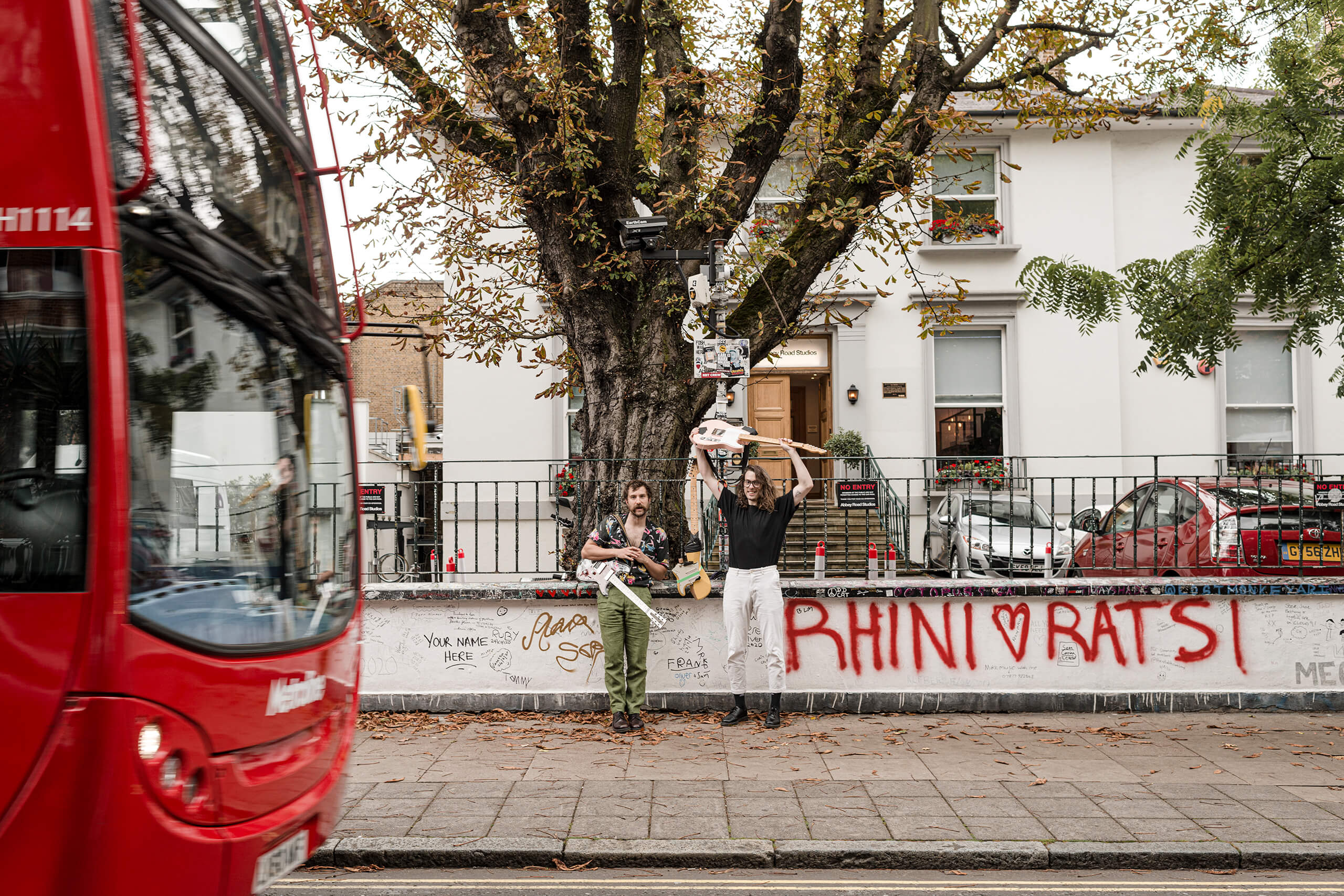
Bowen hit the wall in Paris, four months into touring. “I wasn’t functioning as a human being,” he says. “The majority of Ultra Mono comes from Joe and myself, who had already been on the journey that Lee went on at the end of touring. The album is describing that process, and what comes out the other end: I love this. I have to be confident in myself. I am me. I am playing to my strengths. I’m part of this.”
Brutal fight
Idles formed in Bristol in 2009, navigating a few years as a so-so indie concern before bursting into life with the Meat EP and their 2017 debut LP Brutalism. In a normal world they would have already racked up 100 gigs this year. Instead, with COVID-19 wiping their calendars clean, they recently suited up for livestream sets captured at Abbey Road, outside which our socially distanced photo shoot takes place. Fun, right? “It was the hardest thing I think we’ve ever done as a band,” Bowen counters. “I can’t explain how psychologically difficult that was.”
Idles – completed by the murderous rhythm section of bassist Adam Devonshire and drummer Jon Beavis – function because of muscle memory honed on the road, and the energy generated by an audience. They would have neither at Abbey Road. Their first rehearsal was only a few weeks before the cameras were due to roll.
“I think we had two or three with the full band, playing stuff that we hadn’t played live before,” Bowen recalls. “And if you think of some songs from Brutalism, we’ve been playing them for maybe six years. I’ve never had to think about what my fingers do when I play Mother. It’s all feel.”
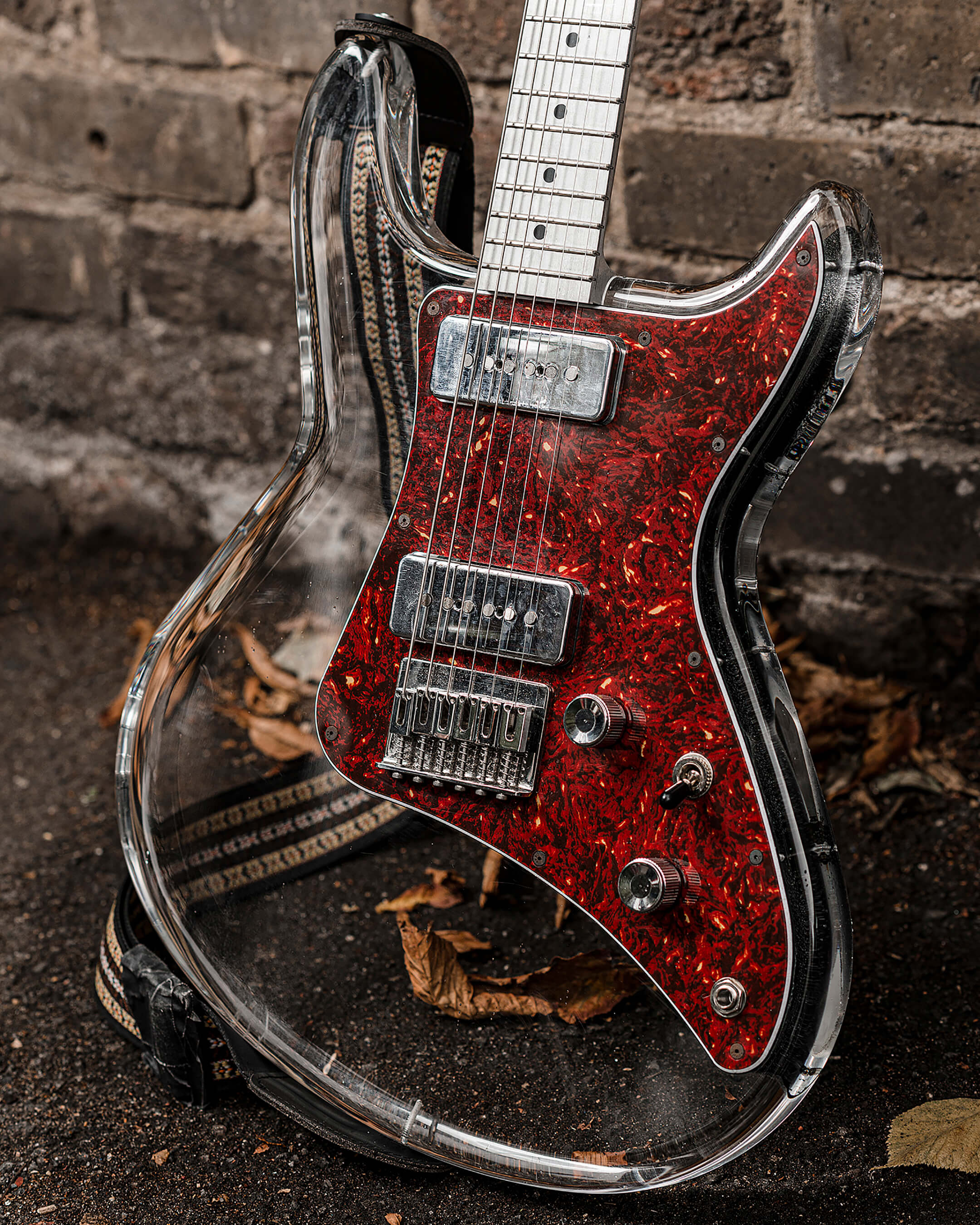
For Kiernan, the hill was even steeper. “I was late to the band because I live in Hamburg,” he says. “When I got back for the first time it was just me, Jon and Dev. They started Mother, and I played every note wrong. I just stood there looking at my guitar.”
Biting back
Their battles with self-belief might have cast a long shadow, but the songs on Ultra Mono bit back at every turn. For Idles the record is about accepting who you are, that you are enough, and that you can thrive on your own terms. It’s that, and letting people know what they think in the most straightforward manner possible.
Idles are a spectacularly divisive band, and a lot of that has to do with Talbot’s bare-knuckle sloganeering and posi-polemics. To detractors he is didactic, even hypocritical and virtue signalling. To the band’s fans – including a 30,000 strong Facebook community called AF Gang – he is a lightning rod. His words on Ultra Mono veer from empathetic calls for unity to primary school rhymes and straight-ahead fury.
“Some people misunderstand our songs,” Bowen says. “It could come across that we’re telling them, ‘We’ve got everything sorted.’ But we need these mantras for self-confidence. Joe, especially. He sings ‘love yourself’ because he struggles to love himself. The themes on this album are very personal to Joe because he’s holding a mirror up to himself and going, ‘Fuck, this is me.’ Oftentimes when Joe is singing, he’s sharing something that we’ve all shared. That’s why people like our band. They go, ‘I’ve been in that position.’”
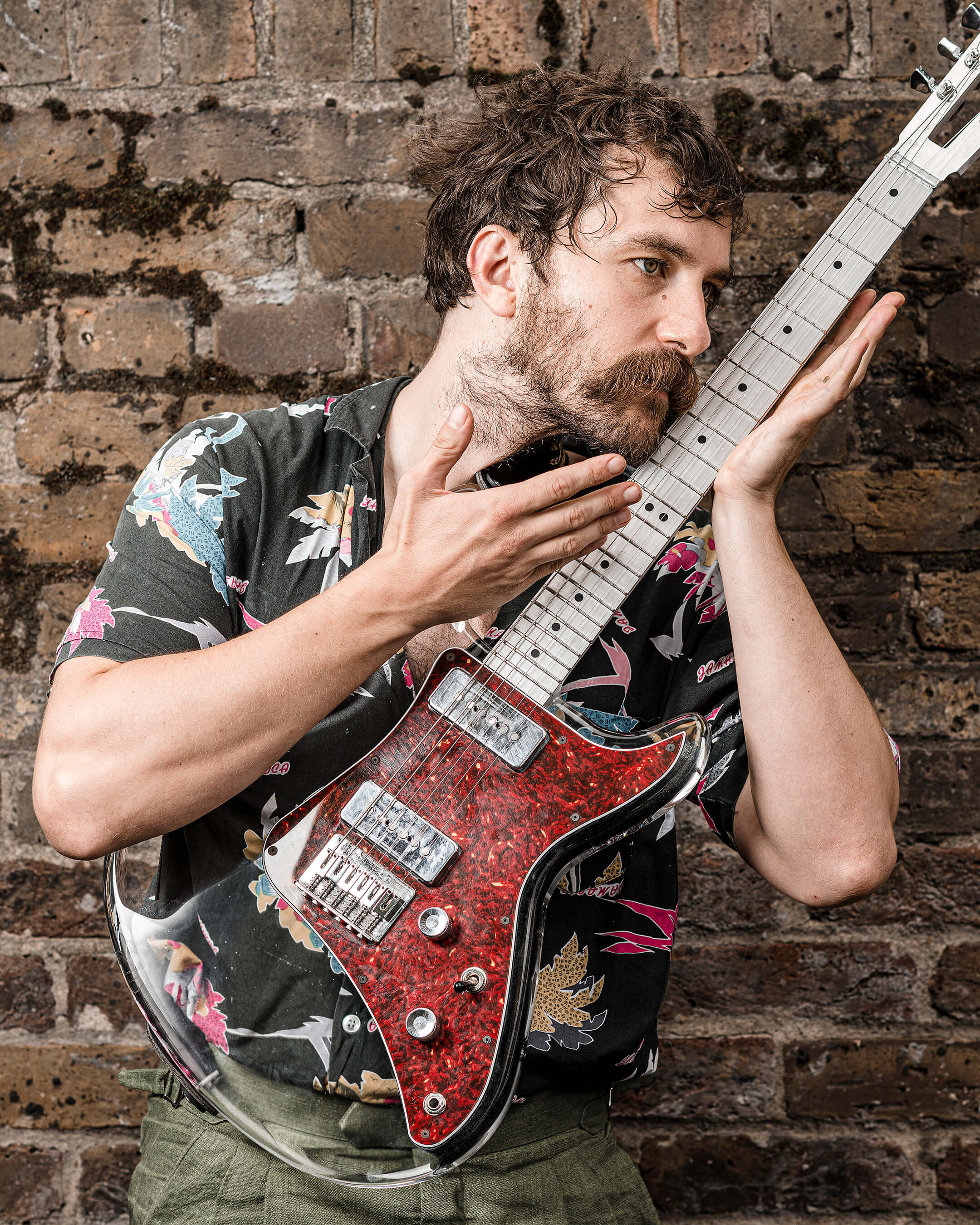
On Grounds, Talbot underlines that sentiment. “Do you hear that thunder? That’s the sound of strength in numbers,” he drawls. His voice is enmeshed by squalling, heavily manipulated guitars and the crushing weight of Beavis’s snare. The challenge for Idles is to match Talbot’s duck-and-weave bark with something that delivers the same sort of rabble-rousing bluster. “The creative process starts with the title, almost as a manifesto,” Bowen says. “We’ll talk about what Ultra Mono means lyrically, what it means sonically.”
“I use Creamery pickups on all my Fenders. He’s got this ice pick, really, really trebly, one called the Red ’79. The poles of the magnet are particularly strong around the D and G strings”
Ultra Mono is an album of extremes from top to bottom. It was largely written in two weeks, and recorded in two more at La Frette studios, near Paris, with returning producers Nick Launay and Adam Greenspan. Talbot’s words were often conjured on the spot. Its guests range from Bad Seed’s Warren Ellis and Savages’ Jehnny Beth to the Jesus Lizard’s David Yow and jazz-lite pianist Jamie Cullum. After all that, it took four months to mix as Idles sought to deliver the handbrake turns they had hard-coded into the songs.
“We wanted it to be of the moment,” Bowen says. “It was so important getting the drum sound to be exactly as it should be, then getting the guitars to work with the drums, or separately, so that it could be as powerful or as loud an album as possible. There was a lot of Lee and I making decisions about where we stood in the frequency bandwidth. A lot of the time, me and Dev form this one instrument and Lee’s this spike, the top end. It was about keeping things simple and being mindful of what everyone else is doing so you’re part of this one whole thing.”
Perfect balance
Bowen and Kiernan have found the ideal foil in one another, coming from disparate musical beginnings to achieve aggro equilibrium in their playing. When one vacates a space, the other dives in. “I’ve got photos of me playing a toy guitar at age two,” Bowen says, noting influences from Kurt Cobain and Jack White to Duane Denison and Dick Dale. “My dad played, my uncle was in a band. I loved how beautiful they were, and that they had a purpose. My daughter is one, she’ll pull the strings and it adds energy to a room instantly.”
Kiernan’s route was more circuitous. “When I was younger I loved Motown and classical music,” he says. “Then I got into drugs and slammed it really hard. I thought, ‘You know what, I’ll join the Marines.’ I got knocked down medically with a broken wrist, a broken toe, a kidney infection. On the way home I was on the phone to my mate and he was like, ‘Why don’t you play bass in my band?’
“At the age of 16 I started playing bass, and I hated it. I was like, ‘I’m going to play guitar.’ I started playing Blink-182 covers. I was obsessed with the 80s so I learned anything by Brian May. Then the drugs came back. I stopped playing for six years and became a chronic alcoholic and drug addict. I got sober and joined this band. Here I am now. It doesn’t really make any sense.”
The guitars on Ultra Mono are a genuine team sport. Bowen and Kiernan hold fire when needed before flooding the EQ spectrum, hoovering up every inch of room. Key to their success is the understanding that noise is an element of their approach that requires the same care and attention as each riff or melody. As Grounds powers to its conclusion, there is a palpable feeling that Idles are trying to physically overwhelm the listener.
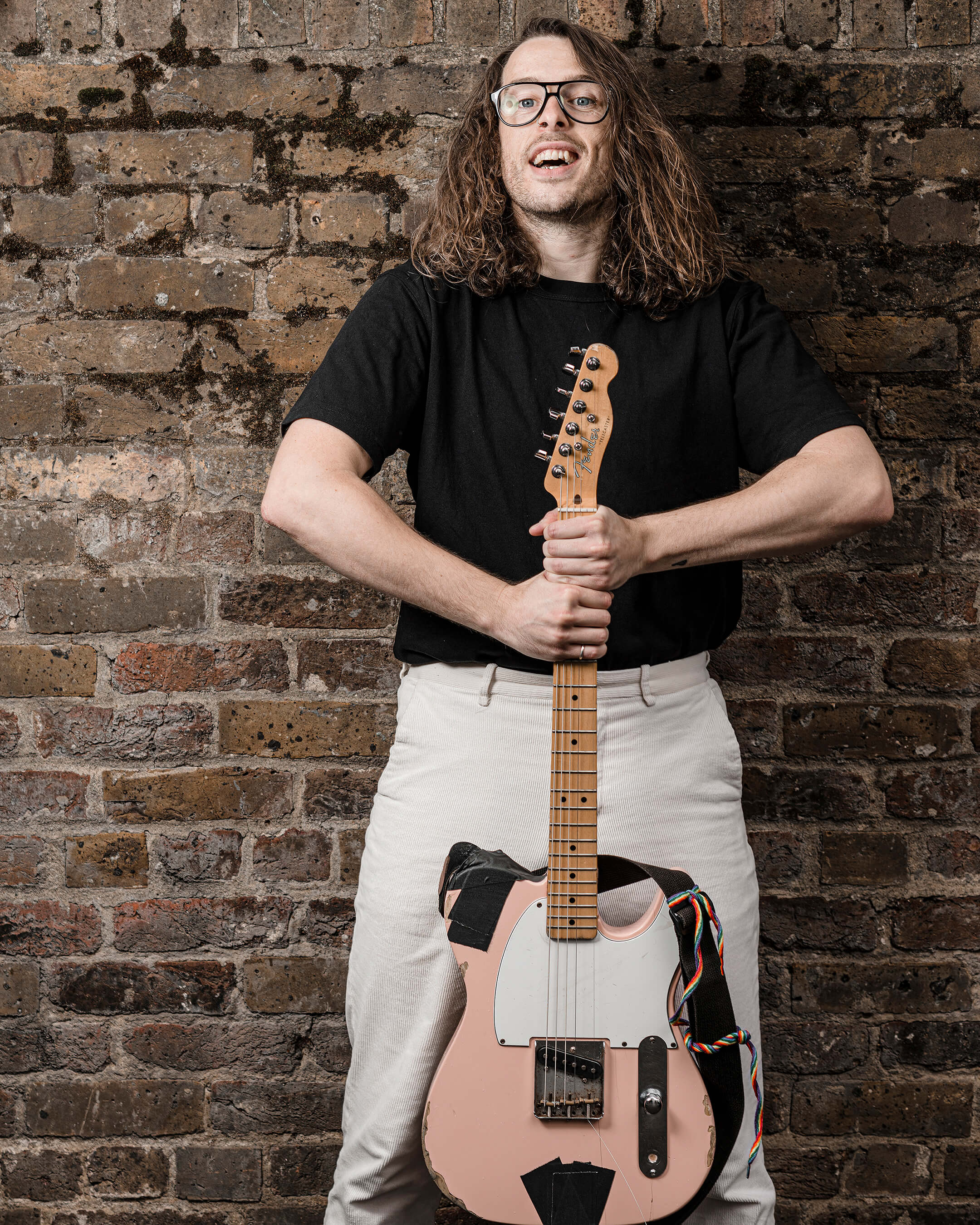
“One of the big points with belief in yourself is to understand where your strengths lie,” Bowen says. “One of Lee’s greatest strengths is making those harsh sounds that go with snares, those really caustic jabs. The strength that I was playing to was this big, rung out, bassy sounding feedback, like on the end of Grounds. It’s about rhythm, too.”
Kiernan takes the baton. “On the second part of the verse, Bowen’s playing between the stabs,” he says. “It creates that flow, it makes you want to move to it. And on Reigns, playing along with Dev, he’s adding rhythm and drive and motion to the song.” He pauses. “Isn’t this nice? We’re telling each other what they’re good at.”
“I have a Player Series Tele with a Bare Knuckle pickup, then my pink Baja Tele. Both of them are beat up, they’ve been toured heavily. So much so that I had to tune every single time I stopped playing”
The flip side is the time the pair spent trying to ensure that their guitars sounded nothing like guitars at all. Ultra Mono is the closest they feel they’ve come to successfully incorporating their hip-hop influences, with producer Kenny Beats, fresh from mixtapes with Rico Nasty and 03 Greedo, chiming in and Kanye West’s Yeezus exerting a profound hold over the shrieking metallic nature of its palette.
“I think Grounds is actually a hip-hop song,” Bowen says. “In trying to become our influences, we pushed our guitar playing to the natural conclusion. The intro doesn’t sound like a guitar. It sounds like a synth. If you listen to Lee’s guitar on Danke it sounds like someone smashing a bit of metal. I almost exclusively listen to electronic music with bizarre found sounds and horrible noises. It looms large in my thought process.”
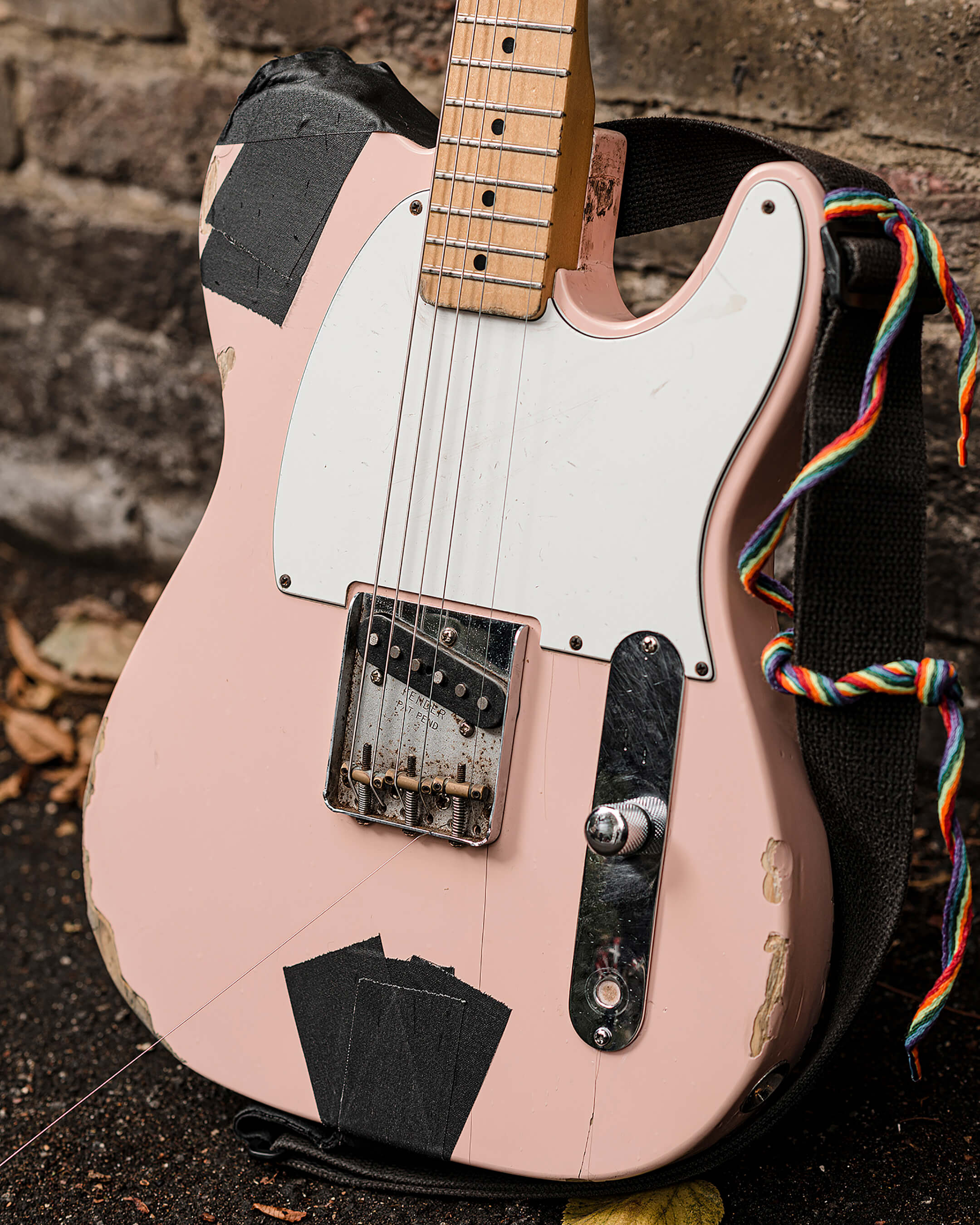
Tools for the job
Reflecting the nature of Ultra Mono as a maximalist record that almost always views the loudest, most confrontational option as the way to go, their gear options ranged from the bare essentials to tools designed for noisy excess. Guitar-wise, Bowen welcomed an Electrical Guitar Company custom onboard for the first time, seeing it as a conduit to ensure his vision was made real.
“When I was writing I didn’t have that guitar but I had it in mind,” he says. “It’s able to make these Steve Albini-type harsh sounds, but on the other side my favourite band Sunn O))) use them to make that heavy ‘BRRRM!’ sound. Those are the two sounds I make on this album, so that was pivotal. I also used one of the new Player Series Stratocasters.
“I use Creamery pickups on all my Fenders. He’s got this ice pick, really, really trebly, one called the Red ’79. The poles of the magnet are particularly strong around the D and G strings, which works with the music we play. I used that on the more traditional garage-rock sounding ones. It has this rough and ready, late ’70s post-punk sound.”
A knock-on effect was that Kiernan also turned to Creamery, utilising their Dark Line pickup when borrowing Bowen’s Mustang for Model Village. Otherwise, he stuck to his road warrior Telecasters. “I didn’t rock the boat,” he says. “I have a Player Series Tele with a Bare Knuckle pickup, then my pink Baja Tele. Both of them are beat up, they’ve been toured heavily. So much so that I had to tune every single time I stopped playing. There’s also my Esquire, which is a Partscaster with Mojo Broadcaster bridge pickups. Apart from his EGC, Bowen and I only have bridge pickups straight to volume, no tone.”
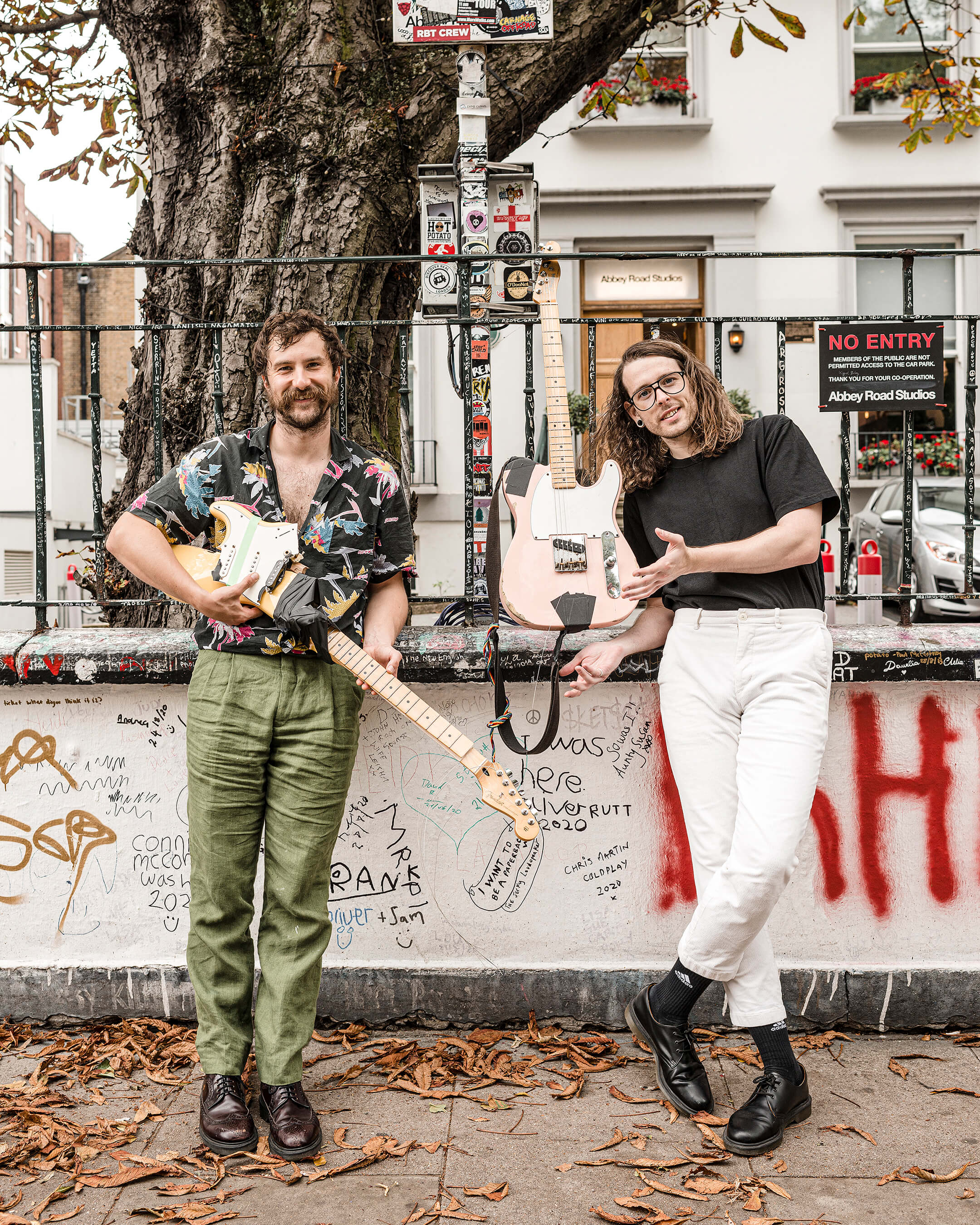
Then there are the wildcards: a ‘71 Musicmaster and a Bajo Sexto baritone Telecaster that walked into Bowen’s life at exactly the right time. “I used the Musicmaster on the intro to A Hymn,” he says. “I’d set up the pickups in series, and had them with just the volume control. Basically, I turned them down until they were extremely quiet, and then had my pedals really loud. It made this John Carpenter synth sound when I played it with my fingers.
“It was more is more, is more, is more. I think we had more than 10 amps each but when it’s necessary there’s not even an effect”
“On every single song, I play a baritone part to either bolster the bass or my guitar. Olivier [Bloch Lainé], who owns La Frette, was a composer and was in pop bands in the 60s. One of the rooms upstairs where people stay is walls and walls of his guitars. He was very convivial, good to chat to at dinner, and he walked down with the guitar and was like, ‘I’ve been listening to you, and I don’t know why but I feel like this is going to help you.’ It felt amazing to play and sounded incredible. It has a real vibe.”
A lot of the guitars on Ultra Mono ended up going straight to desk, but that didn’t stop Bowen and Kiernan assembling massive amp rigs in order to achieve even the slightest competitive advantage. The pair are also pedal fiends, and they demanded everything each piece of kit could give, with Bowen notably calling on Red Panda Ratster for the opening skronk of Grounds, and Kiernan hammering an Interstellar Overdriver by Death By Audio for fuzz at every turn.
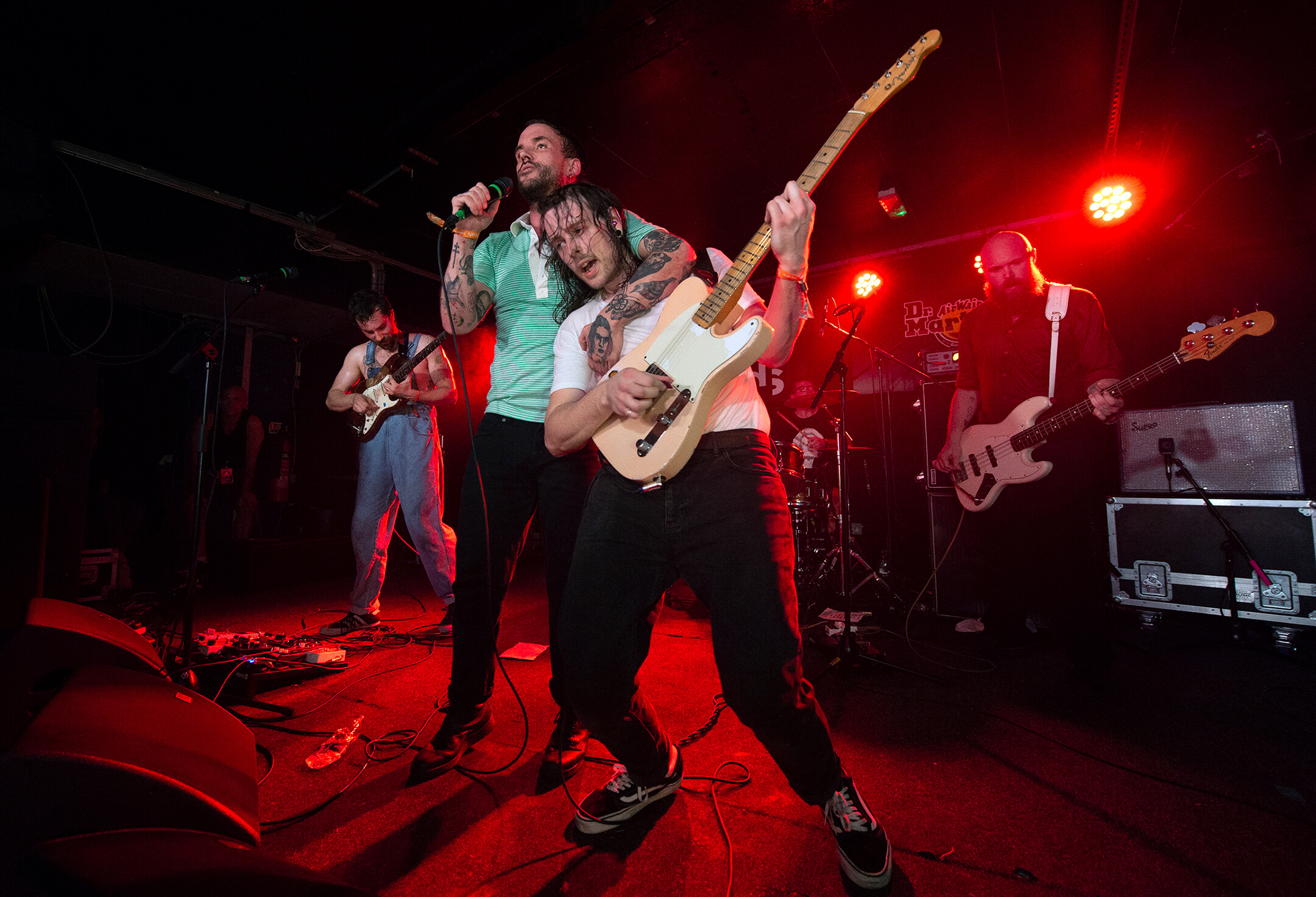
“It was more is more, is more, is more,” Bowen laughs. “I think we had more than 10 amps each but when it’s necessary there’s not even an effect. It’s just guitar meets mixing desk. In a way that’s simplifying things, and making things more present, but in order to have these simple parts sound incredible, you have to make it sound exactly as it does in your head. We had to use our pedalboards to their full potential. That meant carving EQ, but also making things sound like a horn section, or crashing metal.”
Kiernan describes the lengths Idles went to in order to secure the right elements with one anecdote about a roiling feedback section to accent Reigns’ relentless post-punk yowl. “It’s situational,” he says. “With the amount of amps we had in the room we had to turn them all to the wall so we weren’t bleeding into every microphone. I was doing my take in a one-foot space between the wall and the amp – when the guitar was there it went ballistic. If we didn’t set up like that, we wouldn’t have got that sound.”
Ultra Mono is a mass of contradictions. It is spontaneous. It is meticulously crafted. It is ambitious and florid. It is a blunt instrument. People will love it intensely. People will hate it intensely. It’s Idles in miniature. “The thing about this band is that we’re always open, we always talk about our problems,” Kiernan notes. “We try to actively engage with these feelings and help each other through moments of despair. That is, for me, what this album means.”
Ultra Mono is out now on Partisan Records.
